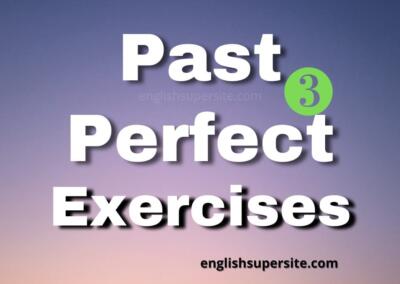
Verbs
Verbs: Express Actions, States, and Occurrences
Verbs are words that describe actions (e.g., “run,” “eat,” “write”), states of being (e.g., “is,” “seem,” “exist”), and occurrences (e.g., “happen,” “occur”). They are essential for constructing meaningful sentences in English, as every complete sentence must contain a verb. Verbs also indicate tense, showing whether the action or state occurs in the past, present, or future. Different verb forms include regular, irregular, and auxiliary verbs, which support the main verb in a sentence.
Mastering verb use allows you to convey precise actions, states, and timing in both speech and writing.

Past Perfect - Exercises 3 - Practice exercises with Past Perfect. Improve your English skills with exercises and ...
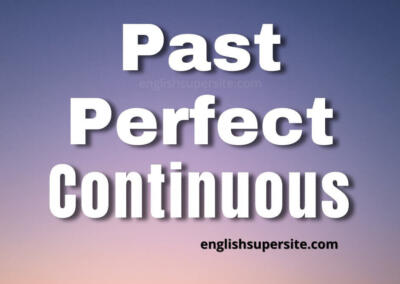
The Past Perfect Continuous is a verb tense we use to express that an action started in the past and has continued ...
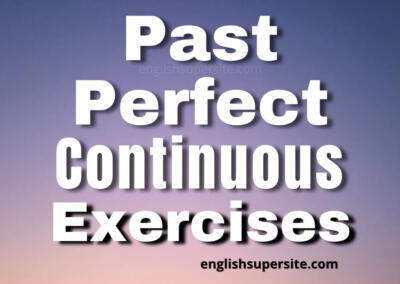
Past Perfect Continuous - Exercises - Practice exercises. Improve your oral and written skills with exercises and ...
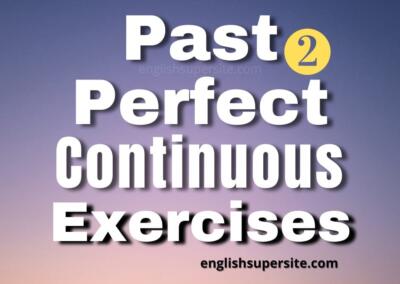
Practice Past Perfect Continuous - Exercises 2 with a multiple-choice quiz and real-time feedback. Improve your ...
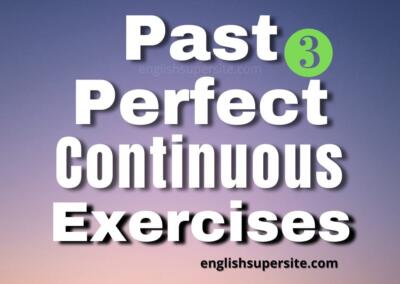
Practice Past Perfect Continuous - Exercises 2 with a multiple-choice quiz and real-time feedback. Improve your ...
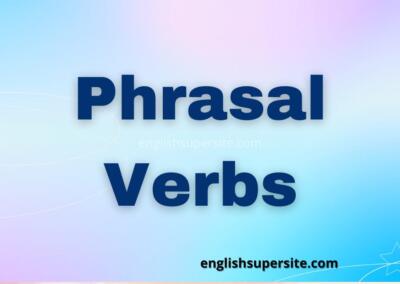
Extremely popular in spoken English, phrasal verbs can be confusing sometimes due to their definitions that are ...
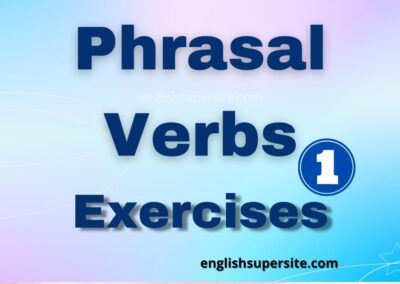
Phrasal Verbs - Exercises 1 - Quiz - Check your progress in REAL TIME. These exercises can help you evaluate your ...
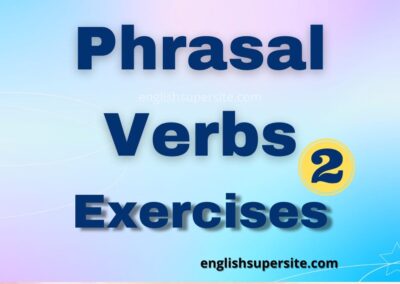
Phrasal Verbs - Exercises 2 - Quiz - Check your progress in REAL TIME. These exercises can help you evaluate your ...
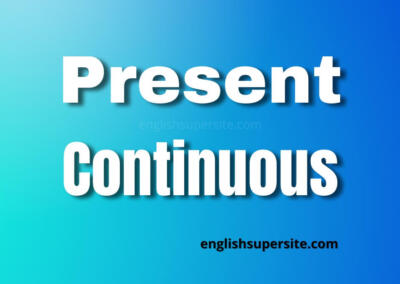
The Present Continuous is a verb tense we use to express that an ongoing action is happening now. It gives a sense ...
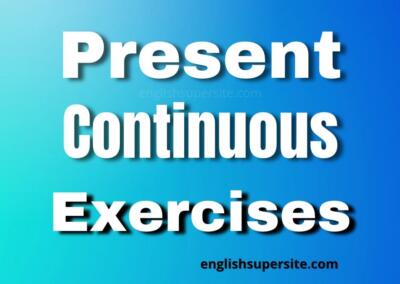
Present Continuous - Exercises - Practice exercises with Present Continuous. Improve your oral and written skills ...
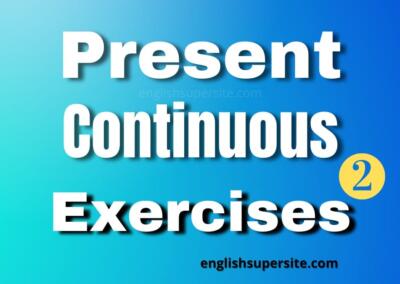
Verb Tenses - Present Continuous - Exercises 2 - Practice this quiz with Present Continuous. Improve your English ...
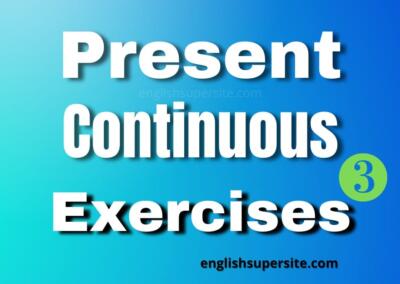
Verb Tenses - Present Continuous - Exercises 3 - Practice this quiz with Present Continuous. Improve your English ...
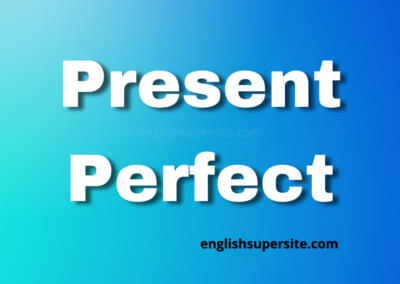
The Present Perfect is a verb tense we use to express that an action or something has happened in the past and it ...
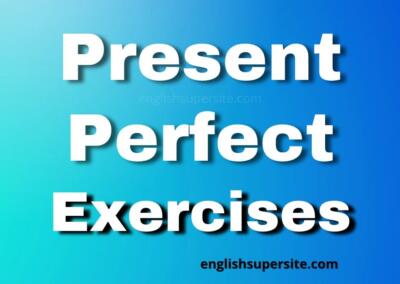
Present Perfect - Exercises - Practice exercises with Present Perfect. Improve your oral and written skills with ...
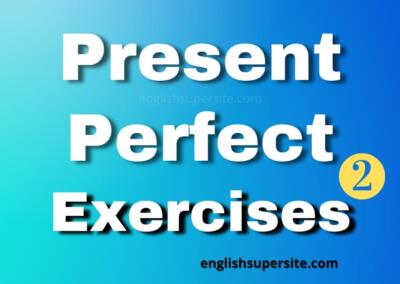
Present Perfect - Exercises 2 - Practice exercises with Present Perfect. Improve your oral and written skills with ...
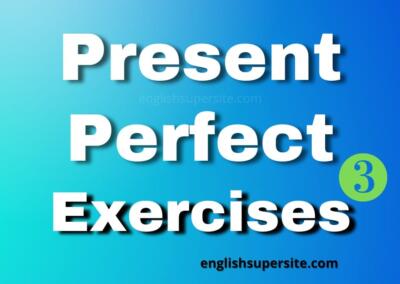
Present Perfect - Exercises 3 - Practice exercises with Present Perfect. Improve your oral and written skills with ...
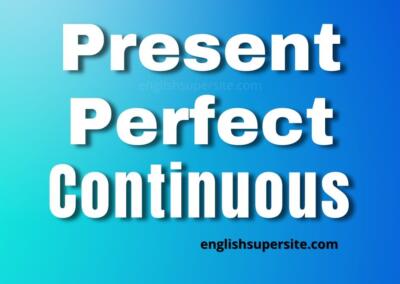
The Present Perfect Continuous is a verb tense we use to express that an action started in the past and has ...
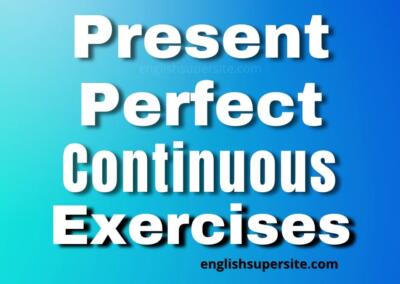
Present Perfect Continuous - Exercises - Practice exercises with Present Perfect Continuous. Improve your oral and ...
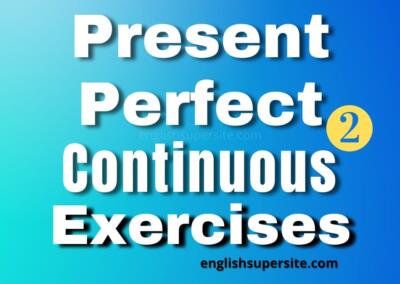
Present Perfect Continuous - Exercises 2 - Practice exercises with Present Perfect Continuous. Improve your ...
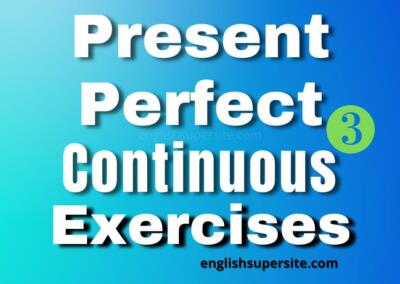
Present Perfect Continuous - Exercises 3 - Practice exercises with Present Perfect Continuous. Improve your ...
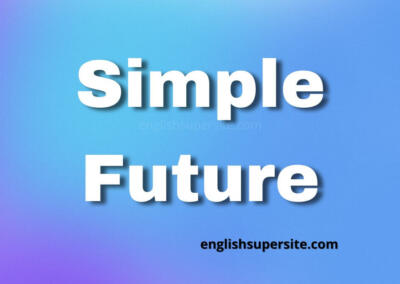
We use Simple Future when you want to speak about an event that will happen in the future. The Simple Future tense ...
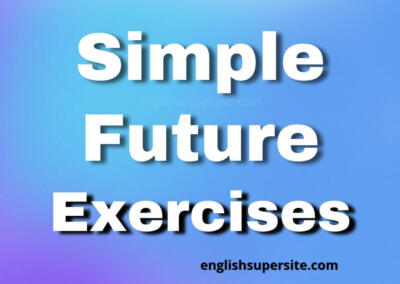
Verb Tenses - Simple Future - Exercises - Practice exercises with Simple Future. Improve your oral and written ...
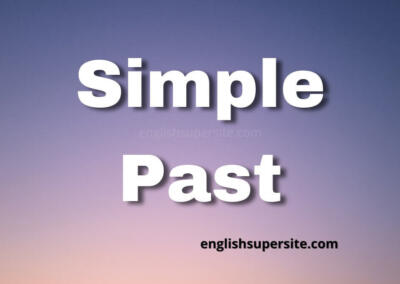
The Simple Past is the verb tense we use to describe actions and events in the past. It is also used to describe ...
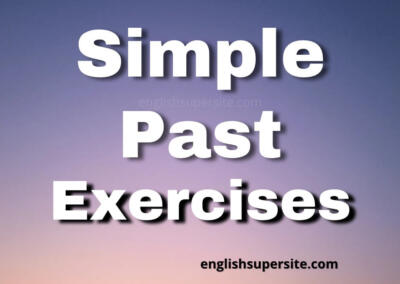
Simple Past - Exercises - Practice exercises with Simple Past. Improve your oral and written skills with exercises ...
Related Posts
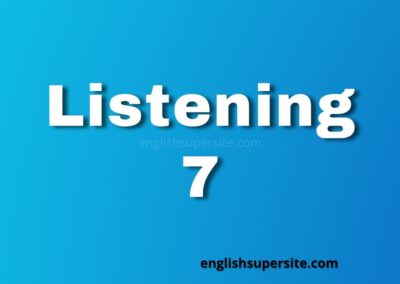
Listening 7 - Practice these listening comprehension exercises to help you learn English faster. Listening ...
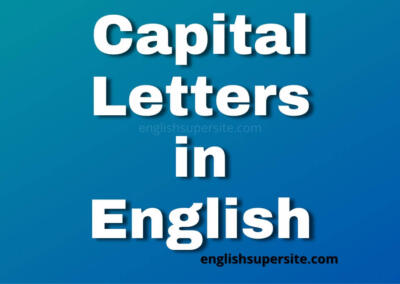
Capital Letters in English! Improve your written English. Study and learn capital letters, upper-case letters, big ...

Verb Tenses - Present Continuous - Exercises 2 - Practice this quiz with Present Continuous. Improve your English ...


